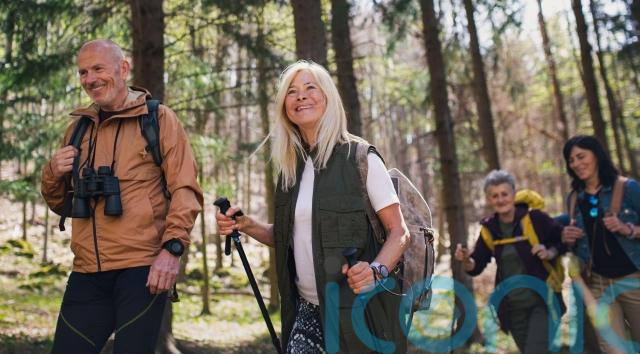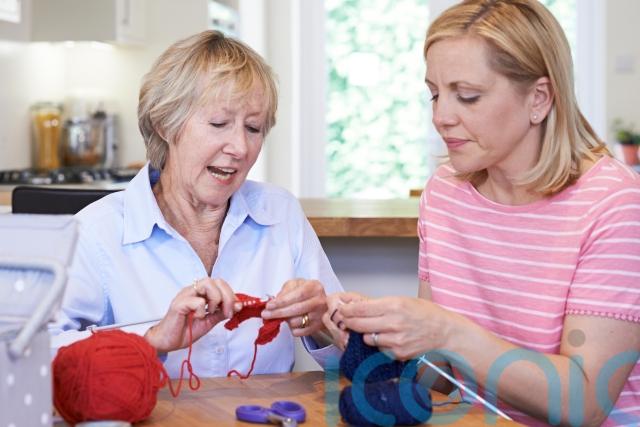
Retirement is often perceived as a golden opportunity to travel the world and pursue different passions, but the realities of day-to-day life can often be a shock to the system.
Many of us take the regular social contact of work and its collaborative environment for granted until it is gone.
“Work for most people is a social experience, so there can be a propensity to find yourself really socially isolated in retirement – especially when your spouse, friends and adult children are still working,” recognises Brieanne Doyle, BACP accredited therapist and founder of Dwell Therapy.

Some retirees struggle with this sudden increase in downtime.
“Social isolation can be a risk factor for depression and anxiety,” says Doyle. “Isolation creates an enormous amount of time to think and, while this can sometimes be a great thing, it can lead to overthinking and real rumination on the way things have happened. This can lead to a lot of worry and can become a negative reinforcing cycle.”

To help boost your confidence and wellbeing in retirement, here are eight ways to stay social while navigating this next chapter…
1. Consider a gradual transition into retirement
“Find ways to bridge the gap between full-time work and retiring completely,” suggests Doyle. “Finding a volunteer role or moving towards some sort of contract work, or maybe serving on an advisory board can be helpful for navigating this transition out of full-time work.
“People have so much knowledge to offer and it can feel like a waste to do nothing.”
2. Become a volunteer
“Volunteering often utilises the skills you’ve had from the workplace, so it can feel productive,” says Doyle. “Helping others can also help increase our endorphins, which are the feel-good hormones in our brain.
“Volunteering is also often a social experience, so helps nurture social connection and provides a sense of giving back.”
3. Seek out intergenerational connections
“In a world where we increasingly live very individualistically, older people can often feel forgotten,” recognises Doyle. “Finding a place where you’re engaging with different generations – whether that be as a volunteer or at church – can help offer deeper connection.
“For example, there’s a midweek programme in my community which brings children and elderly people together to do an art project. Socialising with different people in your community can help people feel more connected to where they live and helps combat loneliness.”
4. Go for a walk with friends

“Walking is free and we know that as people age, they need to work to maintain their mobility,” says Doyle. “So, if you are able to get out and brave the elements and meet a friend for a walk, that can be great. There are also lots of local rambling groups that meet on a regular basis.”
5. Attend a community lunch
Community lunches are put on across the country and are run by a variety of local volunteer groups, charities and community organisations.
“These lunches bring together people who are available midday and want some kind of connection,” explains Doyle. “They often end up having some intergenerational component to them because people volunteer to cook and help out at them.
“Everyone eats a meal together, but it’s not really about the food. It’s about the connection that’s made between people when they are sat all together.”
6. Join a club with people who share a passion

Bonding over a shared passion can help nurture connection.
“When you are passionate about something, you are excited and excitement is infectious,” says Doyle. “It’s much easier to build social connection with people when we are feeling positive. Being a part of a community group where you’re doing similar things and enjoying it together can enormously help contribute towards positive mental health.”
7. Schedule in regular calls with your family

“Find a way to have regular communication with your family,” advises Doyle. “That might be learning how to use technology, such as FaceTime, Zoom or WhatsApp, which will enable you to stay connected. If you aren’t confident with technology, don’t be ashamed to ask for help.”
8. Be proactive
“The most important thing is to be proactive about reaching out to others,” stresses Doyle. “There’s so many free cultural events and community groups happening in many cities and towns across the country but you have to be proactive and seek them out. They’re not going to land in your lap.”
Subscribe or register today to discover more from DonegalLive.ie
Buy the e-paper of the Donegal Democrat, Donegal People's Press, Donegal Post and Inish Times here for instant access to Donegal's premier news titles.
Keep up with the latest news from Donegal with our daily newsletter featuring the most important stories of the day delivered to your inbox every evening at 5pm.